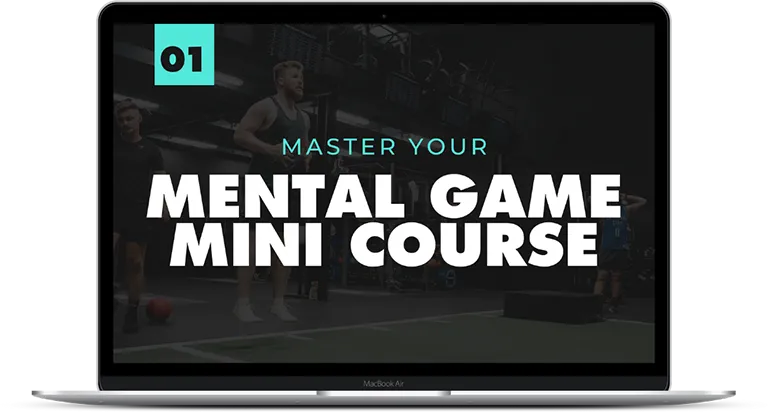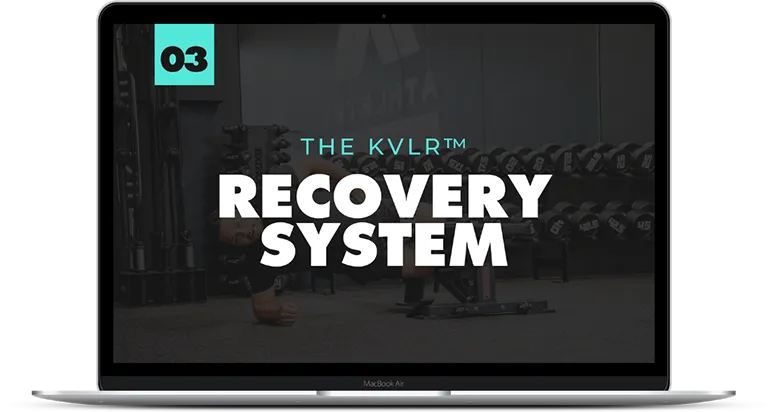Athletes Authority
Latest Blog & Insights

How Athletes Can Improve Their Self-Talk With A Bulletproof Performance Statement
Overcome The Devil Over Your Shoulder And Win The War Of Words Going On Inside Your Head.
The greatest weapon against stress is our ability to choose one thought over another.
WILLIAM JAMES, THE FATHER OF MODERN PSYCHOLOGY
How Athletes Can Improve Their Self-Talk With A Bulletproof Performance Statement
While you can escape a lot of things in life — like the dishes, cleaning your bedroom or even someone you’re trying to avoid at a party, something you can’t escape is the voice inside your own head.
This voice is commonly called your self-talk and unfortunately for most, it isn’t usually in the best shape — especially when the chips are down or, you’re put under a high-pressure situation. It’s like a cruel trick — when you need your head the most, it’s the most likely to let you down. The devil over your shoulder begins to plant seeds of doubt, he talks about the result and gets you ahead of yourself, or, he tells you you’re going to f*ck it all up.
If that sounds familiar, you’re not alone. You’re actually experiencing one of the most common struggles of aspiring athletes — negative self-talk.
If you’ve read any of our previous blogs on mental performance, you’d know the most important factor is confidence (read that blog here). Self-talk, as it so happens, is one of the greatest levers you can pull to influence self-confidence. That’s not just me talking smack, that’s been validated extensively in the sports psychology research; an athlete’s internal dialogue significantly impacts performance.
Praise proved to be much more effective at improving performance than criticism.
How Athletes Can Improve Their Self-Talk With A Bulletproof Performance Statement
Take the 100 Human’s example on Netflix where participants were asked to spin plates. Half of the group would spin plates, and the expert judge, no matter how good or badly they performed the task, would be praised. The other half, no matter how well they did, were criticised.
A few hours later, the two groups had a second go. The first group, who had spent the whole time being criticised, performed significantly worse on average, than the group who were praised. While just one small case study, this goes to show just how important your words are.
Your athletic performance is just like your ability to spin plates — it’s affected by your internal dialogue. Take Ivan Lendl for example, who before he started implementing a performance statement into his mental skills routine, was nine wins, twelve losses against John McEnroe back in the ’80s. He made a conscious decision to change his dialogue, starting with a quote that illustrates this point nicely: “I look forward to beating John McEnroe.” He’d go on to win ten of his next thirteen encounters.
And that is a perfect segue to the incredible value in having a bulletproof performance statement. So what is it?
A performance statement isn’t self-talk, but rather, an element of your self-talk that is used as a centering mechanism. Conveniently, it works great with the diaphragmatic breathing strategy from one of our previous articles.
Your performance statement is a central, go-to thought that reinforces something you can control, like a process. “Stay tall and take one step at a time”, would be an example, a runner might adopt who struggles with posture and strength at the back end of a race. Depending on your sport, it might make sense to have multiple statements for different key tasks.

Tiger Woods has always been known for mastering his mental game.
How Athletes Can Improve Their Self-Talk With A Bulletproof Performance Statement
Why A Bulletproof Performance Statement Works
How Athletes Can Improve Their Self-Talk With A Bulletproof Performance Statement
The reason a performance statement is so effective is for three key reasons:
The first is to remove the mental mess in your head that impairs your decision making. For athletes who don’t have something specific to think about, their mind fills it with anything and everything. Most of the time, these thoughts are unproductive and distractions. A Performance Statement(s) helps to create a laser focus on the task at hand and the process that will best help you achieve that goal.
The second reason is to counter not just distractions, but a truly negative dialogue.
This is your “I Can’t” thoughts. They represent the devil on your shoulder encouraging you to take the easy option. You can’t eliminate the devil, but you can’t counter him. Suppressing negative self-talk with a bulletproof and concrete performance statement is one of the best counters you have. Whenever the devil rears its ugly head, you’ll be able to hit it like whack-a-mole.
The third goal is to replace your “don’t” thinking. This is different from “I can’t” thoughts in the sense that this helps reframe the things you’re trying to avoid doing, with things you should be doing.
Taking the same example from above, that would be like replacing “Stay tall and take one step at a time” with “Don’t collapse over and stop worrying about the km’s ahead.”
While on the surface it appears to achieve the same thing, the latter has a greater tendency to increase stress and anxiety, making it harder and harder to pay attention to the task at hand. This increases the likelihood of being ineffective and doing exactly what you were trying to avoid which perpetuates the negative cycle.
How Athletes Can Improve Their Self-Talk With A Bulletproof Performance Statement
Creating Your Own Performance Statement
How Athletes Can Improve Their Self-Talk With A Bulletproof Performance Statement
To construct your own performance statement, you need to consider what the single most important idea is that would put you in the best position to succeed. Here is a short-list of questions that can help get the creative juices flowing:
What are the most important thoughts that I need to regularly remind myself of to perform at my best?
What do I regularly tell myself when I remind myself that everything is going to be ok?
What do I tell myself when I need motivation and trying to push through that helps?
What do I tell myself when I need motivation?
If I were to have the best coach in the world stand next to me and give me a few lines of advice and coaching, what would he or she say to me?
With these questions answered, what are your three performance statements you will recite over and over again during training and competition, both when things are going well but also when things get hard?
1._______________________________________________________________
2._______________________________________________________________
3._______________________________________________________________
Now that you have your performance statements established, it’s up to you to make a commitment to implement these things when the going gets tough; when you’re tired, frustrated or when things aren’t going their way.
Just in case you need convincing, here are a two more reasons it’s worth implementing:
1) Having something to say when the chips are down is way better than the thoughts that are going to come if you don’t have anything else to say to yourself. Unless you have a bat that you can whack the devil with, the devil rears its ugly head and will cripple you with self-doubt and negativity. And because your body responds to what the mind tells it, you’re setting yourself up for a rocky run. Integrating your performance statement into your regular training will make it more likely it becomes the predominant thought in competition — where it counts the most.
2) In the same way you didn’t get better at your sport without practice and intervention, you can’t expect any difference in your mental performance if you don’t actually apply some type of intervention. If you’re having trouble with your self-talk, you can’t expect that ‘hope’ will fix it. ‘Hope’ rarely works in this domain.
So now, it’s up to you to make the promise to integrate this. We’d recommend doing this in training first as you expose yourself to high-intensity efforts and your key tasks and begin replacing your negative ‘can’t’ talk, or distracting ‘don’t’ talk, with your key performance statements. Once this becomes ingrained as part of your training, then, you can introduce this into competition scenarios.
Take it from Pete Sampras:
“Positive self-talk was my secret weapon — it helped me through adversity and the tough points.”
PETE SAMPRAS, WORLD #1 TENNIS PLAYER
Enjoy this? Check out our free Mental Skills Mini-Course where we share the secrets of the worlds best performers to help you bulletproof your mindset. Click the link on the sidebar to get started.
Want to stop choking in the moments that count the most? Discover how to optimise your thinking to compete like a champion. Click here to learn more.
Our resources

Master your mental game Mini Course
Discover the mindset strategies of the World’s Greatest Athletes so you can turn your mind into a weapon of performance.

THE ATHLETES AUTHORITY RECOVERY SYSTEM
Performance = fitness – fatigue. Reduce your fatigue and recover faster with our 3-step recovery system.
MELBOURNE LOCATION
SYDNEY LOCATION
© 2023, Athletes Authority | All Rights Reserved
Website & Marketing Powered By Gymini

